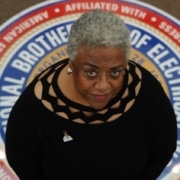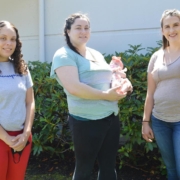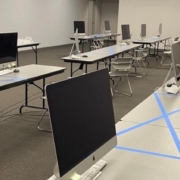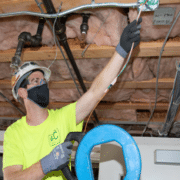Mentorship is vital for union apprentices to succeed in the construction industry and for companies to retain them. The management at Christenson Electric saw that mentorship provided their apprentices a better experience, and started a mentoring program to heighten the connection between all apprentices and experienced leaders.
“Many apprentices feel they do not have a voice,” said Chad Privratsky, project manager at Christenson Electric Inc. Privratsky also leads Christenson’s mentor program, which provides guidance to apprentices through private conversations, work support and leadership development.
Read the full article at Portland Business Journal.









